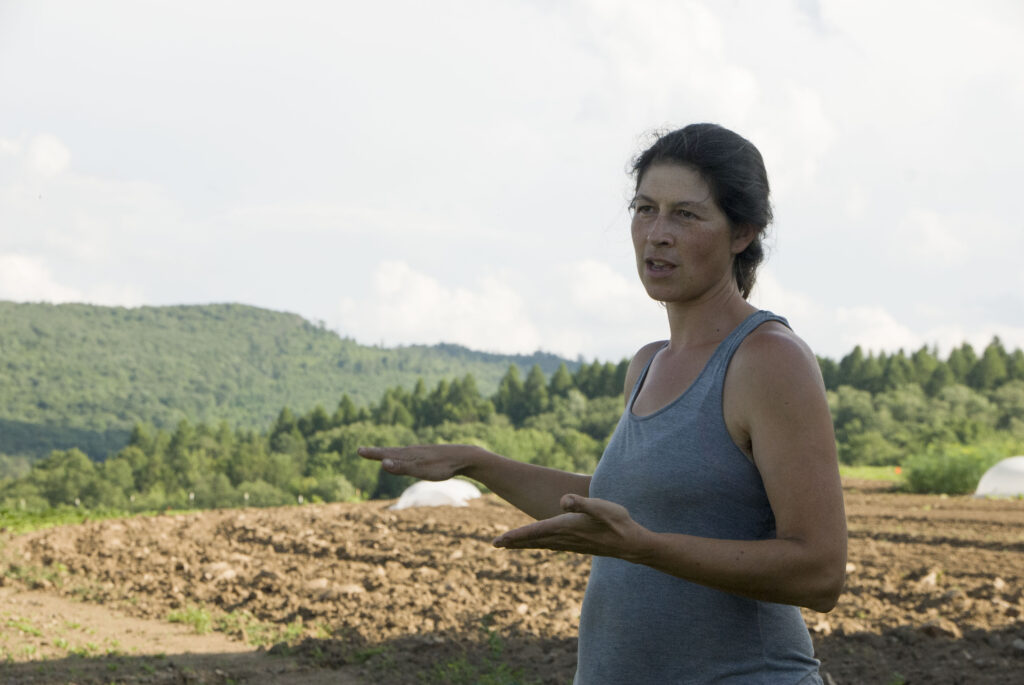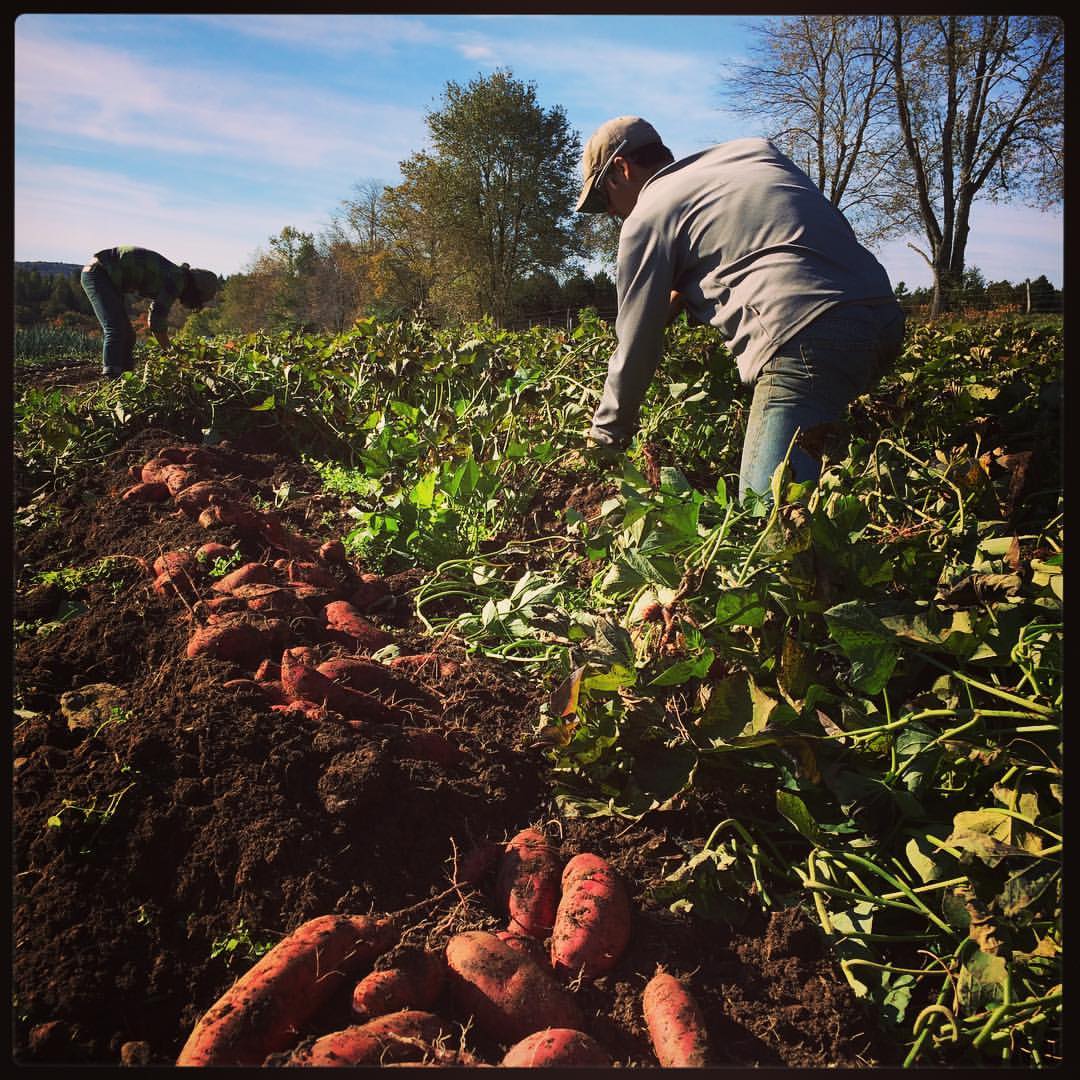MORGANTOWN—Concern over food shortages and difficulty getting to grocery stores due to COVID-19 caused many West Virginians to turn to local farmers, and in turn, local farmers had to turn to one another.
The Coronavirus pandemic increased demand for food, subsequently putting vegetable seeds in higher demand, making it common for seed companies to run out of stock. Growing seeds takes time, and when they go out of stock, increasing the supply cannot be done instantly.
This left farmers needing to find an alternative method to keep up with demand.
“You saw some cooperation, at least in our community, in Putnam County, where we were almost trading seeds, like you would have back in the early times,” said Baxter Mallory, co-founder of Mallory Family Farms of West Virginia in Hurricane. “It was really interesting to see people slide back into an agriculture market.”
Mallory’s family farm is an urban farm mainly relying on vertical, indoor farming techniques to grow produce such as microgreens, mini greens, mushrooms and more. The farm first opened about a year ago, and sharing seeds among other farmers has allowed the farm to thrive despite the seed shortage.

Similar to Mallory, Sunshine Vortigern, co-owner of Round Right Farm in Terra Alta, is no stranger to collaborating with nearby farmers.
Last year’s potato harvest left her with her own homegrown seeds, which Vortigern said would have otherwise been challenging to come by. With the additional supply, she has been bringing her own seeds to other farmers in the area to ensure they can grow the crops they need.
Vortigern is usually able to source her supply of seeds from the first or second company she searches. Recently, she found herself having to look even further to get the larger quantity of seeds her farm requires.

Rumors about the seed shortage circulated early on, which allowed Vortigern to stock up on seeds she needed; however, finding the amount of seeds she needed was no easy task.
“Oftentimes, I would look at one place and it would be sold out and I would look at the next and it would be sold out,” Vortigern said. “Luckily, usually at the third one it would be available.”
A potential food shortage is not the only aspect of the pandemic that drove up seed demand. Vortigern said additional time at home has led more people to turn to home gardening.
Kristin McCartney, WVU Extension public health specialist, said the organization hosts an educational outreach program each year called ‘Grow This: West Virginia Garden Challenge’. Through the program funded by the Supplemental Nutrition Assistance Program (SNAP) and the Expanded Food and Nutrition Education Program (EFNEP), West Virginians are able to learn gardening skills and are provided with materials such as vegetable seeds.
The program was founded in 2017, and typically has about 300 participants each year. Because of the COVID-19 pandemic, that number skyrocketed last year to nearly 26,000 participants.
“That is where we experienced first-hand the issues with the seed shortage last year,” McCartney said. “This year, we have been a little more prepared and ordered our seeds ahead of time.”
Canning supplies have also been in high demand and limited, which was also a hurdle for the program to overcome. Despite the additional obstacles, McCartney said it is great to see more people wanting to get involved in sustainable gardening.
With the shortage of seeds came another problem, which Mallory referred to as a “modern version of the black market.” People outside the farming industry noticed a way to make quick money off the high demand for seeds, and began buying up the supply to sell for a profit on Facebook Marketplace, eBay and other sites.
These seeds were sold at higher prices and also left farmers unable to verify the viability of the seeds being sold. Buying seeds from reputable companies allows farmers to purchase seeds with a high germination rate, but buying seeds from unreliable sellers could leave a farmer purchasing old or damaged seeds. Trading between one another is what allowed farmers like Mallory to avoid relying on this type of market.
“I would have, for the most part, said small farming and this type of stuff would be buffered from that,” Mallory said. “But, when you have a vacuum of seed availability, people will go anywhere they have to to get the seed.”
Although a seed shortage has been a challenge for farmers in the state, COVID-19 has created silver linings for the local farming industry as well.
With local, home delivery in higher demand due to dangers that come with going to grocery stores, more people are relying on local farms to bring fresh foods to their doorstep. Vortigern said the increase in demand for local produce also came from people spending more time cooking at home.
This past year, she said, the farm’s subscription box option had more members than ever before.
“It actually had a positive impact on our business,” Vortigern said.
That upwards trend is continuing into this year, and Vortigern said Round Right Farm is on track to match the number of farm subscription members from the previous year. Mallory’s farm also hopes to begin offering a similar delivery service in partnership with Barn2Door, a farm e-commerce company, in April. He said eventually, the farm hopes to expand this delivery service to the entire state.
Mallory said farmers have grown and adjusted techniques and practices, leaving him and his family confident the industry will continue to thrive.
“I think even if the pandemic were to continue, if we ended up with different variants, or whatever the case may be, I think the market has adjusted appropriately,” he said. “I think the outlook overall is good.”
TWEET @DominionPostWV




